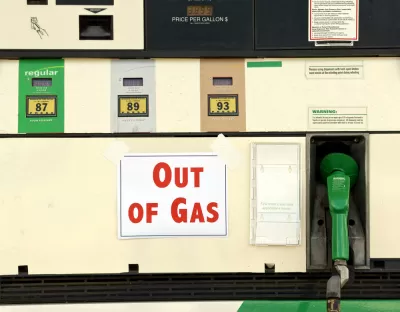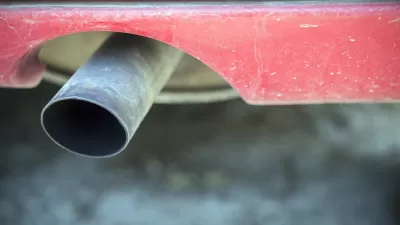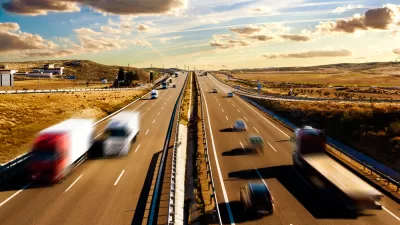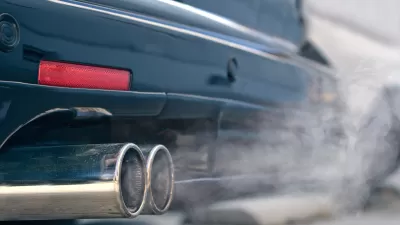A new EPA report indicates that auto manufacturers will meet fuel economy and greenhouse gas emissions standards relying largely on gasoline powered vehicles. Or will they? While likely to fall short of 54.5 mpg, they will come close enough.

Four years ago, the U.S. Environmental Protection Agency (EPA) agreed to auto manufacturers' requests to perform a 'midterm evaluation' for meeting the rigorous 2025 fuel economy and greenhouse gas emission standards. The idea was to allow for the possibility of reducing the standards in the latter years should they prove too difficult to meet.
A draft report issued July 18 by EPA in coordination with the National Highway Traffic Safety Administration (NHTSA), a division of the U.S. Department of Transportation (DOT), and the California Air Resources Board (CARB), shows there won't be a need for decreasing the 54.5 mpg goal.
"The draft TAR [Technical Assessment Report] shows that automotive manufacturers are innovating and bringing new technology to market at a rapid pace, and that they will be able to meet the MY [model year] 2022-2025 standards established in the 2012 rulemaking with a wide range of cost-effective technologies," states the announcement by the U.S Department of Transportation. [Italics added.].
Furthermore, they will be able to meet the standards without greater adoption of electric vehicles (EVs).
"Today’s draft report shows that automakers are developing far more technologies to improve fuel economy and reduce greenhouse gas emissions, at similar or lower costs, than we thought possible just a few years ago. And they are adopting these fuel-saving technologies into their fleets even faster than anticipated,” said Janet McCabe, acting assistant administrator for EPA’s Office of Air and Radiation. “This is simply great news for consumers, manufacturers, workers and the climate.”
The report "shows that the standards can be met largely with more efficient gasoline powered cars – we continue to project that only modest penetration of hybrids and only low levels of electric vehicles are needed to meet the standards," states the report's introductory webpage. [Italics added.]
View from EPA critics
The announcement omits stating that manufacturers will actually meet the 54.5 mpg standard by 2025.
"Even with all those positives, government officials said, the 54.5 mpg goal is off the table," reports Sharon Silke Carty, editor of Automotive News (paywall protected). "Lower gasoline prices have kept demand for SUVs, crossovers and other light trucks higher than originally anticipated, meaning the advances in fuel economy technology won’t be reflected fully in the fleet averages, which are sales-weighted."
Carty's article is referenced in an Auto Blog post, "Government abandons 54.5-mpg CAFE standard," by Brandon Turkus.
Hat tip to AASHTO Journal.
FULL STORY: EPA, DOT, and CARB Issue Report on 2022-2025 Vehicles Meeting Fuel Economy and GHG Emission Standards

Planetizen Federal Action Tracker
A weekly monitor of how Trump’s orders and actions are impacting planners and planning in America.

Congressman Proposes Bill to Rename DC Metro “Trump Train”
The Make Autorail Great Again Act would withhold federal funding to the system until the Washington Metropolitan Area Transit Authority (WMATA), rebrands as the Washington Metropolitan Authority for Greater Access (WMAGA).

The Simple Legislative Tool Transforming Vacant Downtowns
In California, Michigan and Georgia, an easy win is bringing dollars — and delight — back to city centers.

The States Losing Rural Delivery Rooms at an Alarming Pace
In some states, as few as 9% of rural hospitals still deliver babies. As a result, rising pre-term births, no adequate pre-term care and "harrowing" close calls are a growing reality.

The Small South Asian Republic Going all in on EVs
Thanks to one simple policy change less than five years ago, 65% of new cars in this Himalayan country are now electric.

DC Backpedals on Bike Lane Protection, Swaps Barriers for Paint
Citing aesthetic concerns, the city is removing the concrete barriers and flexposts that once separated Arizona Avenue cyclists from motor vehicles.
Urban Design for Planners 1: Software Tools
This six-course series explores essential urban design concepts using open source software and equips planners with the tools they need to participate fully in the urban design process.
Planning for Universal Design
Learn the tools for implementing Universal Design in planning regulations.
Smith Gee Studio
City of Charlotte
City of Camden Redevelopment Agency
City of Astoria
Transportation Research & Education Center (TREC) at Portland State University
US High Speed Rail Association
City of Camden Redevelopment Agency
Municipality of Princeton (NJ)





























